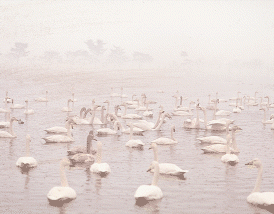
| THE INTEGRITY PAPERS | Genre - Benking - US Website | ceptualinstitute.com |

Links to * Conference
Registration * Hotel Registration *
* Program at a Glance *
* Full Program *
* Sightseeing Guide
(English) * Sightseeing
Guide
Invited Speakers
- * Meurig Beynon, University of Warwick, U.K.
- * Kerstin Dautenhahn, University of Reading, U.K.
- * Joseph Goguen, University of California, San Diego, U.S.A. & Oxford Univ., U.K.
- * Masako Hiraga, University of the Air, Japan
- * Mark Turner, University of Maryland, U.S.A.
- * Brian Scassellati, MIT Artificial Intelligence Lab, U.S.A.
(* = confirmed)
Aims and Objectives
Metaphor and analogy have served as powerful methods in language, cognition and the history of science for human agents and cultures. Software, robotic and living agents also show or may take advantage of such methods in interacting with their worlds.
The focus of this workshop is the phenomena of meaning transfer between different domains (minds, systems, technologies, cultures, etc.) and their computational structure and design. The tools of transfer include imitation, analogy, metaphor, and narrativity which support learning, reasoning, understanding and culture for agents coping with their worlds.
In metaphor, meaning transferred (between different agents or from one realm to another within a single system) may be, for example, symbolic or non-representational knowledge, particular sets of behaviours, a structural description or finite-state automaton model of a physical phenomenon, cognitive models and hierarchical categories, coordinate systems affording understanding, or a paradigmatic viewpoint for construction of science or social reality.
This workshop seeks to bring together researchers from various disciplines where aspects of descriptive, mathematical, computational or design knowledge concerning metaphor and analogy have emerged, including, for example, embodied intelligence, robotics, software and virtual agents, semiotics, linguistics, cognitive science, psychology, philosophy, cultural anthropology, history of science, consciousness studies, mathematics, algebraic engineering, and intelligent systems.
Suggested Topics
- algebraic, computational, symbolic or non-representational approaches to metaphor
- analogy as a cognitive and linguistic phenomena
- computational nature of metaphor and analogy
- applications within agents (including living organisms, software agents and robots).
- issues of grounding of analogies
- cross-cultural, cross-technology, cross-species understanding of metaphors
- imitation, narrativity and metaphor
- social intelligence and sharing of metaphors by human and non-human agents
- automatic generation and manipulation of metaphor and analogy
- embodied and situated, computational systems and meaning transfer
- empowering metaphors
- metaphors in scientific discourse
- evolution of metaphor in language and culture
- metaphor and cognitive technology
- algebraic engineering
- formal models affording understanding
Conference General Chair
- Shoichi Noguchi, University of Aizu, Japan
Advisory Committee
- Rodney A. Brooks, MIT Artificial Intelligence Lab, U.S.A.
- Joseph Goguen, University of California, San Diego, U.S.A. & Oxford Univ., U.K.
- Douglas R. Hofstadter, Indiana University, U.S.A.
- Alex Meystel, National Institute of Standards and Technology, U.S.A.
- Melanie Mitchell, Santa Fe Institute, U.S.A.
International Program Committee
- Meurig Beynon, University of Warwick, U.K.
- Lawrence Bull, University of the West of England, U.K.
- Zixue Cheng, Univ. Aizu, Japan
- Kerstin Dautenhahn, University of Reading, U.K.
- Gilles Fauconnier, University of California, San Diego, U.S.A.
- Robert M. French, University of Liege, Belgium
- Joseph Goguen, University of California, Santa Diego, U.S.A. & Oxford Univ., U.K.
- Karsten Henckell, New College of the University of South Florida, U.S.A.
- Masami Ito, Kyoto Sangyo University, Japan
- Jacob L. Mey, Odense University, Denmark
- Alex Meystel, National Institute of Standards and Technology, U.S.A.
- Chrystopher L. Nehaniv (Chair), Univ. Aizu, Japan
- Minetada Osano, Univ. Aizu, Japan
- Thomas S. Ray, ATR Human Information Research Labs, Japan & University of Delaware, U.S.A.
- John L. Rhodes, University of California at Berkeley, U.S.A.
- Paul Thagard, University of Waterloo, Canada
Local Organization at University of Aizu
- Zixue Cheng
- Y. Kesen
- T. Ishikawa
- T. Maeda
- C .L. Nehaniv
- M. Osano
- K. Yamauchi
Publication & Submissions:
We plan to publish a high-quality post-conference proceedings volume including invited and some selected contributed papers with Springer Verlag in the Lecture Notes in Artificial Intelligence (LNAI) series.
Prospective authors are invited to send an electronic postscript submission or three hardcopies to the program chair at the address below by January 1, 1998. Fontsize should be 11 point and the length may vary between 4-6 pages. Authors will be notified of acceptance or rejection by February 15, 1998, and final versions for the working notes will be due March 15, 1998. A working papers volume will also be published and available at the workshop.
Submissions and requests for further information should be sent to the program chair:
Prof. Chrystopher L. Nehaniv - CMA^2
Cybernetics & Software Systems Group
University of Aizu
Aizu-Wakamatsu City, Fukushima Pref.
965 Japan
Version of 12.III.1998
: Updates at http://www.u-aizu.ac.jp/CMAA/welcome.html